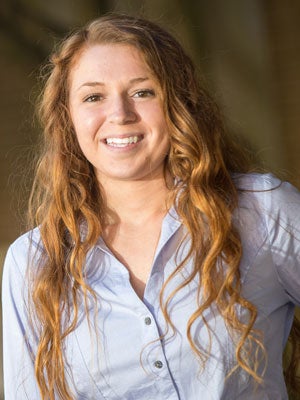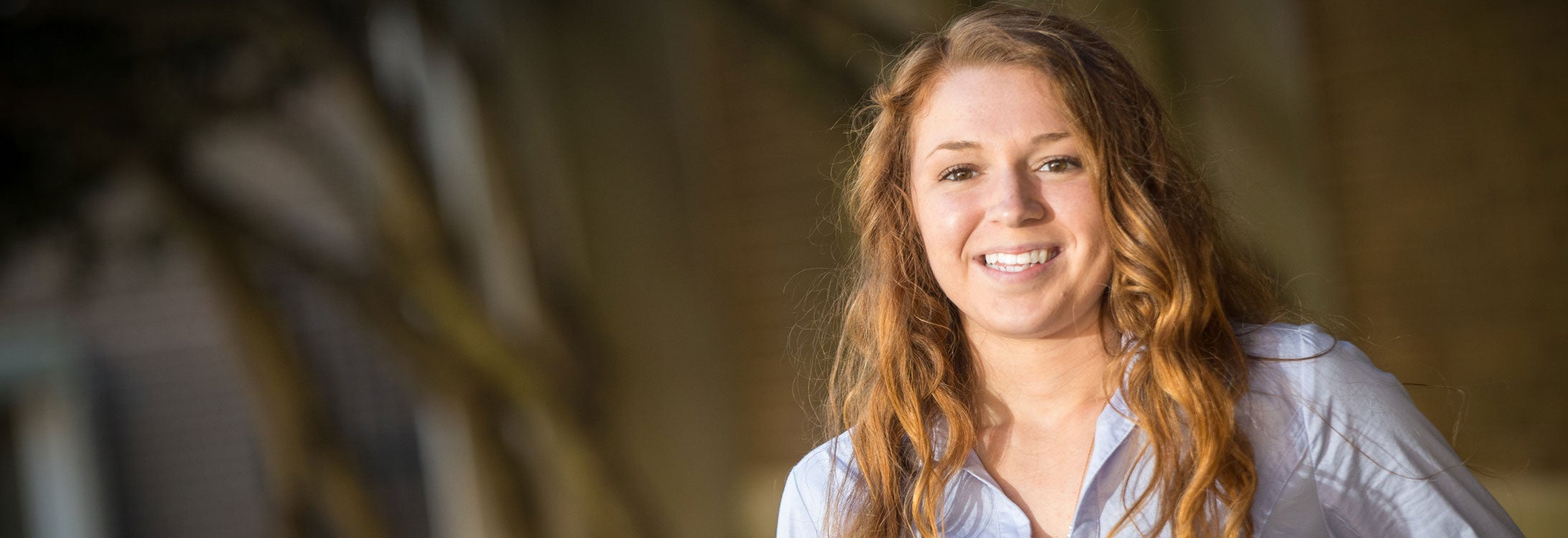Madison Heffentrager

Applied geography major Madison Heffentrager is helping coastal communities with her washover fan research. Madison’s research could one day help aid in local emergency services flood planning from coastal storms.
Major: Applied Geography
Mentor: Thad Wasklewitz
Department: Department of Geography, Thomas Harriot College of Arts and Sciences
Project Title: “Analysis of Washover Fan Formation”
Can you describe your research project?
My project uses a tilt table to simulate how a washover fan forms. A washover fan is a fan-shaped body of sediment that is transported to land by marine waters flowing through or across a coastal barrier such as a barrier bar or island. Individual overwash events will be induced by filling up the “seaside” portion of the model with water and tilting the table, causing water to flow over the dunes and onto the backside of the barrier island.
What were you most afraid of before you started your project?
I was most afraid of the unknown. We are the first people to simulate overwash events like this, so there are multiple points we have to figure out ourselves by using trial and error. However, this is also the most exciting part.
What skills and expertise have you gained from participating in student research?
I have learned the importance of literature – how to properly research my topic – as well as modeling a coastal environment. I believe that these skills will help me in the future when I complete a master’s thesis and it will help me understand how to solve problems in my future career.
What did you find out about your study that you were not expecting?
I am going through testing the tilt table now, so there are no results yet, but I have found out that you have to be creative in coming up with solutions to problems because sometimes what you planned to do isn’t the best way and it can be improved. At first, we wanted to use blocks to stop the table at a certain degree angle, but now we are thinking that a pulley system would work better!
How does your project connect with ECU’s Rural Prosperity Initiative?
My project’s goal is to observe overwash processes in real time to measure the conditions necessary to induce washover fan formation. I hope that with this data, washover can be predicted, which would aid in planning for residents, local authorities and emergency services for areas prone to coastal storms. I believe that this goal connects to the Rural Prosperity Initiative because if rural coastal communities have the information my project provides, they can use it to better educate young students about barrier island processes. Coming from a rural area myself, I believe that if you encourage young students and tell them about potential opportunities, they will become excited and want to grow their ideas and gain more knowledge, which can help all types of communities.
